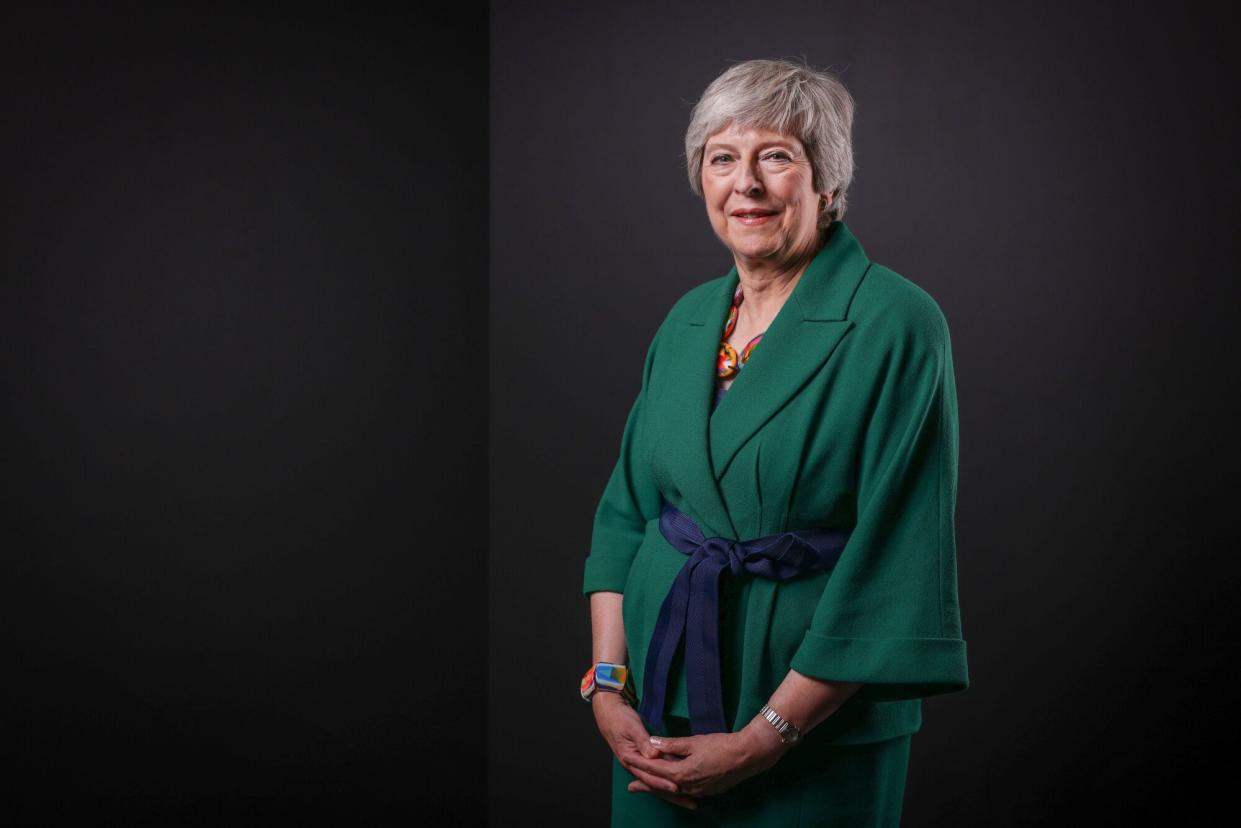Ex-Prime Minister Theresa May to Step Down as MP at Election

- Oops!Something went wrong.Please try again later.
- Oops!Something went wrong.Please try again later.
- Oops!Something went wrong.Please try again later.
(Bloomberg) -- Former Prime Minister Theresa May won’t seek another term as a member of Parliament, making her one of the most senior Conservatives to step aside as the UK ruling party braces for an uphill election battle this year.
Most Read from Bloomberg
One of the Most Infamous Trades on Wall Street Is Roaring Back
Slow US Inflation Retreat Is Set to Bolster Fed Patience on Rate Cuts
May, 67, announced her decision Friday in the Maidenhead Advertiser, which serves her constituency west of London, saying she wanted to spend more time on causes such as fighting modern slavery and human trafficking.
“These causes have been taking an increasing amount of my time,” she said. “I have realized that, looking ahead, I would no longer be able to do my job as an MP in the way I believe is right and my constituents deserve.”
Though not unexpected, May’s exit from British politics is another sign of the challenge facing the Conservatives in the election, which Prime Minister Rishi Sunak is expected to call in the second half of 2024. Some 63 Tory MPs have quit or announced plans to stand down, with the Conservatives trailing Keir Starmer’s opposition Labour Party by more than 20 points in polls.
There have been reports the Conservative Party have asked Tory MPs planning to stand down to avoid simultaneous announcements that could harm the Tories’ electoral prospects.
A so-called “One Nation” Tory from the more centrist wing of the party, May backed Remain in the 2016 referendum on the UK’s membership of the European Union. But she won the party leadership contest months after that vote, putting her in charge of delivering Brexit and handling the fallout from Britons’ shock decision to split from the country’s biggest trading partner.
It was an era beset with parliamentary turmoil and rebellions by Conservative Euroskeptics, who rejected her repeated attempts to balance her political mandate while limiting economic damage. Initially heralded as the nation’s second female prime minister after totemic Tory leader Margaret Thatcher, her power was dramatically eroded when she called a snap election in 2017 that cost the party its majority in Parliament.
She was ultimately forced out in 2019 by the plotting against her, including by her successor Boris Johnson. The gridlock in the House of Commons left her the reputation of an ineffective leader who could not bend MPs to her will.
Yet her reputation and political standing improved since standing down as PM. Set against Johnson, who was ousted as prime minister due to scandal and quit as an MP last year after he lied to Parliament, May’s approach looks more akin to a prime minister from the era before Brexit upended British politics. Liz Truss’s short-lived tenure further laid bare the forces May had contended with.
“She’ll be a loss to the House of Commons,” David Lidington, who was May’s de facto deputy as Cabinet Office minister, told Times Radio on Friday. Her politics were “more rooted in a genuine ethic of public service than many, many others that I have worked with over the years,” he said.
From the backbenches, May largely opted to avoid making trouble for her successors — another tradition neither Johnson nor Truss adopted after they were ousted from office. She did challenge premier Rishi Sunak on his policy of deporting asylum-seekers to Rwanda, where it related to separate UK efforts to tackle human trafficking.
May was elected in Maidenhead in 1997 and held the Tory heartland seat with ease. She had a majority of 33% at the last election in 2019.
(Updates with Lidington comment in 10th paragraph.)
Most Read from Bloomberg Businessweek
How Apple Sank About $1 Billion a Year Into a Car It Never Built
The Battle to Unseat the Aeron, the World’s Most Coveted Office Chair
How Microsoft’s Bing Helps Maintain Beijing’s Great Firewall
©2024 Bloomberg L.P.


